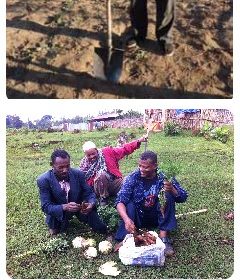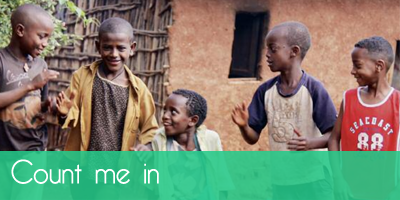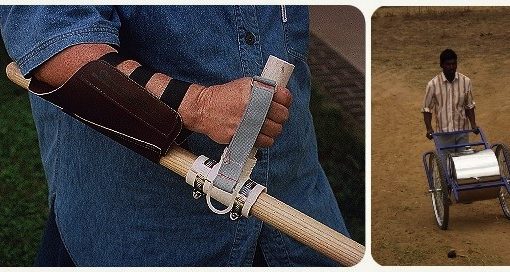The Way Forward…
People with disabilities have an increased chance of living in poverty. In addition, poor people are more prone to getting disabled by for example bad quality of (drinking) water. It’s an insistent and unfair cycle that traps and continues to marginalize those who are in it. Ensuring the participation of people with a disability in economic activities can reduce poverty. ‘This vicious cycle needs to be broken. Including people with disabilities in development projects, training them and loaning money to start their own business could be great first steps.
In the previous years, various cases have showed the benefits of inclusive agriculture and water management. Below some of these case-studies in rural Africa and Asia are presented. These projects show that, often, minor additional costs can often be the offset of financial, economic and social gains. However, the cases also show some challenges which need to be addressed in the future in order to sustain its potential and ambition to contribute to society’s well being.

In the capital of Ethiopia, Addis Ababa, the Cheshire foundation has helped 40 persons to enter urban agriculture and animal husbandry by giving them a small loan. People with disabilities where included in the whole process, from making an individual business plan to harvesting their crops and worked almost independently.
The project improved the food security of people with a handicap, created more independence and self-esteem among the participants and showed that disabled can be strong, creative, hard workers with passion for their profession.
This program needs to be integrated in the general urban farming projects in the city. Also more attention can be paid to using organic fertilizer, vertical gardens and new techniques. More information: http://www.cfe.org.et/

The Fayoum Weed Control Project tries to deal with the increased growing of aquatic weeds in the irrigation channels after the construction of the High Aswan dam in the Nile. The traditional way to clean the channels required people to stand in the polluted water. This has been replaced by a method that uses tools with large sticks, in this way people are less infected by working in the water.
The risk of infection was substantially reduced and the tools can easily be produced by the local blacksmiths. In addition, these tools have been introduced in other parts of the country.
All over the world people get disabled because of polluted water. More tools need to be developed and widely spread to reduce the chance of infection.
More information: http://www.iwtc.info/2010_pdf/12-02.pdf
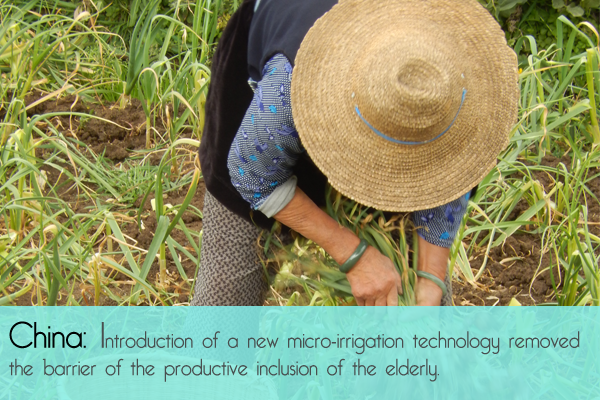
In Xi Country many people live below the poverty line. At the same time, farming in this area is almost exclusively done by people aged 60 or above. The cultivation of fruits is dependable on variable rainfall. In the dry periods, farming stands still, since the elderly are not able to restore irrigation by bucket from local water points. A micro-irrigation system has been introduced to relieve the farmers from this heavy job to fetch water.
The new system increased the number of type of plants that were cultivated. Farmers are now able to grow orchards. It also extended the types of cultivation that were already present, which was not possible before due to lack of framing methods appropriate to the age composition of the agricultural labor force.
More information: http://www.adb.org/sites/default/files/publication/30200/kshow-prc-shanxi-groundwater.pdf
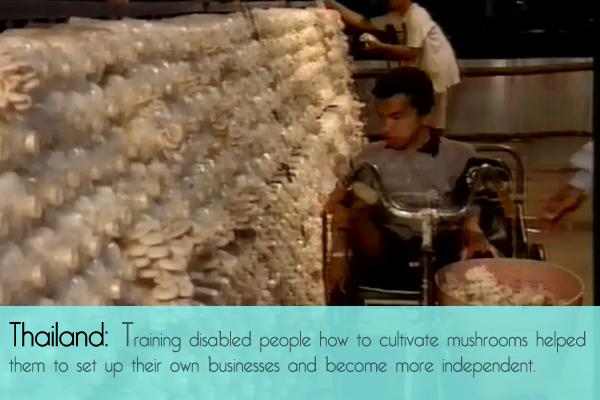
In the Northern part of Thailand disabled farmers are trained in cultivating mushrooms. Besides learning them the practical methods, attention is also paid to the selling and marketing of the end product. What makes this project special is that the trainers within the program also suffer from some kind of disability. The trainees where able to set up their own small businesses. Some of them even became trainers themselves. This ensures the passing through of knowledge.More information: http://www.nationmultimedia.com/business/Joint-FAO-Govt-project-trains-disabled-in-mushroom-30208095.html
Video: http://www.thewaterchannel.tv/media-gallery/6158-training-disabled-people-in-mushroom-cultivation-in-thailand
For more inspiring stories watch the videos below:
